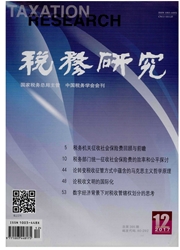

 中文摘要:
中文摘要:
很多国家对政府内部控制进行了有益的探索,逐步形成了有利于政府治理的内部控制规范体系。税收是重要的政府部门之一,税收执法风险日益受到理论与实务界的重视。由于量化方法的局限,现有研究列举了多种可能影响税收执法风险的因素,但难以判断各因素的重要程度。使用内部控制框架可以有效的对这些因素进行分类,以此设计调查问卷并使用层次分析法和主成分分析法进行实证分析。结果表明,从内部控制五要素来看,风险评估方面税收执法风险最大,其后依次为控制活动、监督评审、信息沟通和控制环境。从重要单项因素来看,排在前五位的分别是廉政风险、违规审批发票、风险管理岗位、内控监督评价和纳税申报处罚,需要将这些因素作为防范税收执法风险的重点领域。
 英文摘要:
英文摘要:
The useful exploration on governmental internal controls has been carried out in many countries and the system of internal control standards in favor of governance has gradually formed. As an important government department, the risk of law enforcement in taxation has attracted the attention from both the theoretical and practical circles. Due to the limitations of quantitative methods, it is difficult for the existing studies to judge the importance of each of dozens of fac- tors that may affect the risk of tax law enforcement. The framework of internal control can be used to effectively classify these factors, design a questionnaire and conduct an empirical analysis by Analytic Hierarchy Process and Principal Component Analysis. The results show that, in terms of 5 factors of internal control, the risk of tax law enforcement in the aspect of risk assessment ranks at the top, followed by control activities, supervision and evaluation, information communication and control environment. For the important individual factor, top five are integrity risk, approval of in- voices against regulation, risk management post, internal supervision and evaluation, and tax return penalty. These factors should be regarded as key areas against the risk of tax law enforcement.
 同期刊论文项目
同期刊论文项目
 同项目期刊论文
同项目期刊论文
 期刊信息
期刊信息
